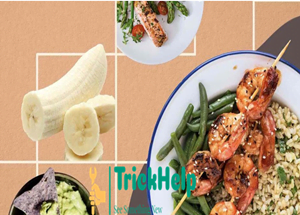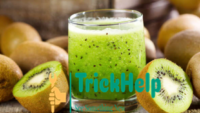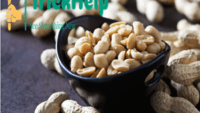A 7-day cardioprotective vegan diet plan focuses on plant-based foods to improve heart health. It emphasizes nutrient-rich vegetables, fruits, whole grains, nuts, and seeds to support cardiovascular function.
Embarking on a vegan journey can be incredibly rewarding for your heart. With the rise of cardio-related conditions, a diet focused on plant-based goodness offers a protective shield for your body’s most vital organ. Such a diet plan reduces the intake of saturated fats and cholesterol, which are culprits in heart disease, and instead loads up on fiber and antioxidants that promote a strong and healthy heart.
By carefully selecting a variety of vegan foods, this 7-day plan is designed not just for those who wish to safeguard their heart but also for individuals aiming for a holistic approach to wellness. A well-balanced vegan diet can lead to improved blood pressure, a decrease in LDL (the “bad”) cholesterol, and a reduced risk of type 2 diabetes, all of which are risk factors for heart disease. As interest in plant-based diets skyrockets, this heart-friendly regimen is both a sustainable and effective way to care for your cardiac health.
Understanding The Basics Of A Cardioprotective Vegan Diet
A cardioprotective vegan diet is a plant-based nutritional approach specifically designed to support heart health. This regimen excludes all animal products, focusing instead on whole grains, fruits, vegetables, legumes, nuts, and seeds. These foods are rich in fiber, antioxidants, vitamins, and minerals, which are pivotal in maintaining a healthy cardiovascular system. By understanding the basics of this diet, individuals can better structure their meal plans to bolster heart function and reduce the risk of heart disease.
Benefits Of A Vegan Diet For Heart Health
Adopting a vegan diet has several key benefits for heart health:
- Low in Saturated Fats: Plant-based diets are typically lower in saturated fats, found in high amounts in animal products and associated with increased cholesterol levels.
- High in Fiber: A high-fiber diet has been linked to better blood lipid profiles and reduced risk of heart disease.
- Rich in Phytonutrients: Vegan diets are dense in phytonutrients that exert antioxidant and anti-inflammatory effects vital for heart health.
- Weight Management: Vegan diets can promote a healthy weight, a crucial factor for cardiovascular wellness.
Through these mechanisms, a vegan diet can be immensely powerful in protecting against hypertension, atherosclerosis, heart attacks, and strokes.
Essential Nutrients For Heart Health On A Vegan Diet
Nourishing your heart on a vegan diet involves more than just avoiding animal products; it demands a careful selection of essential nutrients that support heart health. A balanced vegan diet plentiful in these nutrients works synergistically to protect your heart, ensuring it beats strong for years to come. Understanding the role of these nutrients is the cornerstone of crafting a cardioprotective vegan meal plan.
Menu Planning For A Cardioprotective Vegan Diet
Creating a menu for a cardioprotective vegan diet entails focusing on foods rich in fiber, antioxidants, omega-3 fatty acids, and phytonutrients, all of which guard against heart disease. Let’s break down the nutrient powerhouses to include in your weekly meal plan:
- Fiber: Whole grains, fruits, vegetables, and legumes are fiber-dense choices that help manage cholesterol levels.
- Omega-3 Fatty Acids: Chia seeds, flaxseeds, walnuts, and algae-based supplements offer heart-healthy fats.
- Antioxidants: Berries, leafy greens, and beets combat oxidative stress in the cardiovascular system.
- Phytonutrients: Whole foods, especially brightly colored vegetables and fruits, are full of beneficial compounds.
It’s also crucial to include a variety of vitamins and minerals such as vitamin B12, vitamin D, iron, calcium, and potassium in your vegan diet plan. Nuts, fortified plant kinds of milk, and leafy greens can help you hit these nutritional targets.
Essential Nutrients For Heart Health On A Vegan Diet
Plant-based diets can be rich in essential nutrients that promote heart health. Here’s a snapshot:
|
Nutrient |
Functions |
Food Sources |
|
Fiber |
Reduces LDL cholesterol, regulates blood sugar |
Beans, oats, quinoa, fruits |
|
Omega-3 Fatty Acids |
Decreases triglyceride levels, reduces heart inflammation |
Flaxseeds, chia seeds, hemp seeds, walnuts |
|
Antioxidants |
Fights oxidative stress prevents plaque formation in arteries |
Blueberries, strawberries, kale, spinach |
|
Phytonutrients |
Improves blood pressure, enhances vessel flexibility |
Colorful vegetables, whole grains, nuts |
|
Vitamin B12 |
Essential for red blood cell formation, prevents anemia |
Fortified foods, nutritional yeast, plant-based milks |
|
Vitamin D |
Regulates blood pressure, supports immune function |
Fortified foods, sunlight exposure |
|
Iron |
Central to hemoglobin function, transports oxygen in the blood |
Legumes, tofu, pumpkin seeds, quinoa |
|
Calcium |
Involved in muscle function, including the heart muscle |
Fortified plant milks, almonds, tahini, leafy greens |
|
Potassium |
Balances fluids, helps maintain a healthy heartbeat |
Bananas, oranges, potatoes, avocados |
Each day of your cardioprotective vegan diet plan should be carefully constructed to include a variety of these nutrients. Crafting the right balance not only supports your heart but also ensures overall wellness.
<strong>Nutrient-rich Vegan Breakfast Recipes For Heart Health</p>
Starting your day with a heart-healthy breakfast is more than just a feel-good choice; it’s a way to fuel your body with the right nutrients for cardiovascular strength. A 7-Day Cardioprotective Vegan Diet Plan includes a variety of nutrient-rich vegan breakfast recipes full of wholesome ingredients that work in synergy to protect your heart and improve overall health. These plant-based recipes are not just delicious but are power-packed with essential nutrients keeping in mind the diverse requirements of a balanced vegan diet.
Importance Of Fiber And Omega-3s In Breakfast
Incorporating fiber and omega-3 fatty acids into your morning meal is vital for heart health. Both nutrients play a significant role in reducing cholesterol levels, lowering blood pressure, and minimizing inflammation. A breakfast rich in these nutrients can set a positive tone for the day, delivering long-term benefits for your heart and circulatory system.
- Fiber-filled foods such as oats, flaxseeds, berries, and chia seeds not only help in managing cholesterol but also keep you satiated, reducing the likelihood of snacking on unhealthy options.
- Omega-3-rich ingredients like walnuts, hemp seeds, and algae-based supplements are excellent for a morning start, as they contribute to the elasticity of blood vessels and prevent heart disease.
|
Ingredient |
Fiber Content |
Omega-3 Content |
|
Chia Seeds |
10.6g per ounce |
4.9g per ounce |
|
Flaxseeds |
1.9g per tablespoon |
2.3g per tablespoon |
|
Walnuts |
1.9g per ounce |
2.5g per ounce |
|
Hemp Seeds |
1g per tablespoon |
0.6g per tablespoon |
Creating breakfast recipes that include a variety of these ingredients doesn’t just cater to your taste buds but also ensures a heart-friendly meal to kickstart your day.
- Blend a smoothie with spinach, avocado, chia seeds, and a handful of berries for a quick on-the-go breakfast.
- Prepare a hearty oatmeal bowl topped with sliced bananas, flaxseeds, and a sprinkle of cinnamon for a sweet yet nutritious start.
- Toast a slice of whole-grain bread and top it with smashed avocado, hemp seeds, and radish slices for a crunchy, fiber-rich meal.
Delicious And Filling Vegan Lunch Recipes For Heart Health
Embarking on a heart-healthy journey doesn’t mean you have to compromise on flavor or satiety, especially when it comes to your midday meal. Our Delicious and Filling Vegan Lunch Recipes for Heart Health are tailored to tantalize your taste buds while catering to your cardiovascular well-being. These lunches are crafted to provide a balance of nutrients, packed with plant-based proteins, whole grains, and heart-healthy fats, all aligned with a 7-day cardioprotective vegan diet plan.
Incorporating Plant-based Protein Sources
Protein is a staple nutrient for muscle repair and growth, but it’s also pivotal for heart health. Our vegan lunch recipes focus on plant-based proteins, which are associated with numerous benefits such as lowering cholesterol levels, reducing blood pressure, and minimizing the risk of cardiovascular diseases. Embrace a variety of protein-rich ingredients like lentils, chickpeas, tofu, quinoa, and beans in savory stews, hearty salads, and wholesome sandwiches.
Recipe Example with Table
|
Protein-Packed Quinoa Salad |
|
|
Ingredients |
Amount |
|
Cooked quinoa |
1 cup |
|
Chopped kale |
2 cups |
|
Black beans rinsed |
1 can (15 oz.) |
|
Diced red bell pepper |
1 whole |
|
Roasted sunflower seeds |
1/4 cup |
|
Lemon-tahini dressing |
To taste |
Instructions with Ordered List
- Combine the quinoa and kale in a large bowl.
- Add the black beans and red bell pepper.
- Sprinkle with roasted sunflower seeds.
- Drizzle with lemon-tahini dressing and toss to mix.
Beyond salads, explore grilled tofu wraps, chickpea curry bowls, and lentil soup to broaden your lunchtime repertoire, ensuring a continuous variety of nutrients and flavors throughout your week.
Additional Recipe Ideas with Unordered List
- Grilled Tofu and Hummus Wrap: Combine sliced avocado, shredded carrot, and crisp lettuce for an energizing and creamy wrap.
- Savory Chickpea Curry Bowl: Enjoy chickpeas simmered in a blend of spices, served over brown rice alongside steamed broccoli.
- Hearty Lentil Soup: Savor a warm bowl of lentils with diced tomatoes, spinach, and a hint of cumin for a comforting yet nutritious meal.
Healthy Vegan Snack Recipes For Heart Health
Healthy Vegan Snack Recipes for Heart Health encompass more than just the absence of animal products. They’re a treasure trove of fiber, antioxidants, and heart-friendly nutrients, all while maintaining your palette’s desire for delicious flavors. Embracing a cardioprotective diet doesn’t mean you have to sacrifice tasty treats between meals. Let’s delve into some innovative snack options that cater to the health of your heart without compromising on taste.
Smart Choices For Heart-healthy Snacking
Finding snacks that are both healthy and delicious can be challenging, especially when targeting heart health. But fret not, because smart snacking is about choosing foods that contribute to your health. It’s about striking a balance between satisfying your hunger and ensuring you’re getting beneficial nutrients. Let’s walk through some heart-healthy vegan snack recipes that are simple yet significantly beneficial for your heart.
Recipe 1: Crunchy Kale Chips
Kale chips provide a great crunch and are loaded with vitamins K, A, and C. Here’s a simple recipe to make kale chips that can be a perfect heart-healthy snack.
- Preheat your oven to 300°F (150°C).
- Wash and dry fresh kale leaves, then tear them into bite-sized pieces.
- Toss the kale in a small amount of olive oil and a pinch of salt.
- Place on a baking sheet and bake for 10-15 minutes until dry and crispy.
Recipe 2: Nutty Heart-Healthy Trail Mix
Nuts are excellent sources of healthy fats, protein, and fiber. Combine a mix of almonds, walnuts, and pecans, then throw in some dried fruit like cranberries or raisins for a burst of energy.
Recipe 3: Avocado and Tomato Crackers
Avocado is rich in monounsaturated fats, which are good for the heart. Spread some mashed avocado on whole grain crackers and top with a slice of tomato for a quick, satisfying snack.
Recipe 4: Chocolate-Dipped Strawberry Hearts
Indulge in the richness of dark chocolate without the guilt. Dip half a strawberry in melted dark chocolate for a delicious treat that’s rich in antioxidants.
Recipe 5: Quinoa Apple Bites
These bites are a fantastic blend of quinoa’s complete protein and the soluble fiber from apples which aid in cholesterol management. Combine cooked quinoa, diced apple, cinnamon, and a touch of maple syrup together; roll into balls and refrigerate until firm.
Each snack choice serves a delightful combination of taste and health benefits that align brilliantly with a cardioprotective vegan diet plan. Not only do they feed the soul, but they also fuel the heart with every bite. So, snack smart and keep your heart in great shape!
Savory Vegan Dinner Recipes For Heart Health
Embarking on a cardioprotective vegan diet doesn’t mean sacrificing flavor or satisfaction at the dinner table. The focus is on nourishing and tasty dinners that are as good for your taste buds as they are for your heart. With a variety of whole grains, legumes, vegetables, and nuts, you can create savory vegan dinners that provide the nutrients your heart needs without compromising on taste.
Balancing Macronutrients For A Heart-healthy Dinner
When planning your vegan dinner, it’s important to consider the balance of macronutrients to support heart health. A heart-healthy dinner should include:
- Complex Carbohydrates: Quinoa, brown rice, sweet potatoes, and whole wheat pasta.
- Plant-based Proteins: Lentils, chickpeas, black beans, and tofu.
- Healthy Fats: Avocado, nuts, seeds, and olive oil.
By ensuring a variety of these foods in your dinner, you’re setting the stage for a heart-healthy meal that’s also incredibly delicious and satisfying.
Here are some savory vegan dinner recipes that will delight your palate while caring for your heart:
|
Recipe |
Key Ingredients |
Macronutrients Balance |
|
Black Bean Quinoa Salad |
Quinoa, black beans, tomatoes, corn, lime, cilantro |
Carbs, Protein, Healthy Fats |
|
Stuffed Bell Peppers |
Bell peppers, brown rice, lentils, nutritional yeast, spinach |
Carbs, Protein, Minimal Fats |
|
Mushroom and Spinach Tofu Stir-Fry |
Tofu, mushrooms, spinach, garlic, soy sauce, sesame oil |
Protein, Carbs, Healthy Fats |
Each of these recipes offers a harmonious blend of macronutrients that cater to maintaining a strong and healthy heart. Additionally, the diversity of ingredients ensures you get a variety of antioxidants and phytochemicals which are essential for cardiovascular wellness.
Expert Tips For Infusing Flavor Into Vegan Dinners
Creating heart-healthy vegan dinners is not just about selecting the right ingredients but also incorporating rich flavors without the use of excess salt or sugar. To achieve that, consider the following tips:
- Use herbs and spices like cumin, coriander, chili, and smoked paprika to add depth to your dishes.
- Employ cooking techniques such as roasting or grilling to enhance the natural flavors of vegetables.
- Try fermented condiments like sauerkraut or miso for a flavor boost with added health benefits.
These simple yet effective strategies can transform your vegan dinners into mouthwatering meals that are both heart-healthy and indulgent.
Crafting Complete Vegan Dinners With Adequate Portions
It’s not just what you eat; it’s also how much you eat. Ensuring that your dinner portions are adequate is crucial for maintaining heart health and overall well-being. A complete vegan dinner should typically include:
- A portion of plant-based proteins to keep you full and satisfied
- A good serving of complex carbohydrates for long-lasting energy
- A variety of vegetables or salads for vitamins, minerals, and fiber
- A small amount of healthy fats for nutrient absorption and satiety
An easy rule of thumb is to make half your plate vegetables, a quarter protein, and a quarter carbohydrates, with a small amount of healthy fats. Remember, balance is key to a heart-healthy diet, and these vegan dinners are the perfect testament to that principle.
Tips For Long-term Success With A Cardioprotective Vegan Lifestyle
Embracing a cardioprotective vegan lifestyle is a commendable decision that can have profound effects on your heart health. Nonetheless, the transition to and maintenance of such a diet can present challenges. With the right approach, you can ensure the success of your new dietary habits over the long haul. Consistency, commitment, and a few smart strategies are essential for sustaining a heart-healthy vegan lifestyle.
Incorporating Mindfulness And Physical Activity For Heart Health
Mindfulness and physical activity are pivotal components in supporting a cardioprotective vegan diet. Engaging in regular exercise complements your dietary efforts, enhancing cardiovascular strength and endurance. Below are strategies to incorporate mindfulness and physical activity into your routine:
- Set realistic exercise goals: Begin with manageable activities, such as brisk walking or cycling, and gradually increase intensity.
- Integrate mindfulness practices: Activities like yoga and meditation can reduce stress, a known risk factor for heart disease.
- Monitor your progress: Use a journal or app to track your physical activity and note improvements in your heart health markers.
- Stay consistent: Consistency is key. Aim for at least 150 minutes of moderate-intensity aerobic activity per week, as recommended by health experts.
Remember, a balanced approach that includes both a nourishing diet and an active lifestyle can significantly enhance heart health, and incorporating mindful practices can provide additional emotional and psychological benefits.
Building A Solid Foundation With Nutrients
To thrive on a vegan diet and protect your heart, focusing on nutrient density is crucial. Ensure your meals are rich in the following heart-healthy nutrients:
|
Nutrient |
Sources |
Benefits |
|
Omega-3 Fatty Acids |
Flaxseeds, chia seeds, walnuts, hemp seeds |
Reduce inflammation and improve heart health |
|
Antioxidants |
Berries, leafy greens, nuts, seeds |
Protect against oxidative stress |
|
Fiber |
Whole grains, legumes, fruits, vegetables |
Support healthy cholesterol levels |
|
Plant Protein |
Legumes, tofu, tempeh, edamame |
Builds muscle and repairs tissue |
By centering your meals around these nutrients, not only do you support your heart, but you also feel satisfied and energized, making it easier to stick with the diet long-term.
Community Support And Continual Learning
One of the most effective strategies for maintaining a cardioprotective vegan lifestyle is to connect with like-minded individuals. Participate in vegan communities, both in-person and online, to exchange recipes, share experiences, and find encouragement. Furthermore, continual learning through books, documentaries, and reputable sources can keep you informed and motivated. Here are some ways to keep learning and stay supported:
- Attend local vegan cooking classes or workshops.
- Join vegan forums or social media groups.
- Subscribe to vegan health and nutrition blogs.
- Read the latest research on plant-based nutrition and heart health.
Surrounding yourself with support systems and expanding your knowledge will empower you to make informed decisions about your health and diet.
Customizing Your Vegan Diet To Your Palate
Long-term adherence to a vegan diet also relies on enjoying what you eat. Experiment with different cuisines and flavors to find what excites your taste buds. Customizing your diet ensures it remains appealing and sustainable:
- Explore international vegan recipes for variety.
- Use spices and herbs to add flavor without the need for added salt or sugar.
- Modify your favorite dishes to create vegan versions.
- Plan your meals ahead to ensure balance and prevent last-minute, possibly less healthy, choices.
Enjoyment of your food is essential for a diet’s longevity—relish your meals and the positive impact they have on your health.
Frequently Asked Questions For 7 Days Cardioprotective Vegan Diet Plan
What Is A Cardioprotective Diet?
A cardioprotective diet prioritizes heart-healthy foods, such as fruits, vegetables, whole grains, and legumes, while limiting saturated fats and cholesterol.
Benefits Of A Vegan Diet For The Heart?
A vegan diet can lower the risk of heart disease by reducing cholesterol, blood pressure, and body weight.
What Does A 7-day Vegan Plan Include?
The 7-day vegan plan includes meal suggestions rich in nutrients and free of animal products, tailored for heart health.
Can Vegans Get Enough Protein?
Yes, vegans can obtain sufficient protein from plant sources like lentils, chickpeas, quinoa, and nuts.
Are There Quick Vegan Heart-healthy Recipes?
There are numerous quick vegan recipes that support heart health, many involving fresh produce and whole grains that are simple to prepare.
Embracing a cardioprotective vegan diet can be life-changing. With the seven-day plan outlined, you’re equipped to take heart health into your own hands. Remember, consistency and variety are key to reaping the benefits. Start this journey today and pave the way for a healthier, vibrant future.
Your heart will thank you.






Pingback: Cold Brew Vs Iced Coffee: Which is Healthier? | TrickHelp
Pingback: How Good Is Kiwifruit For You? Discover Benefits | TrickHelp